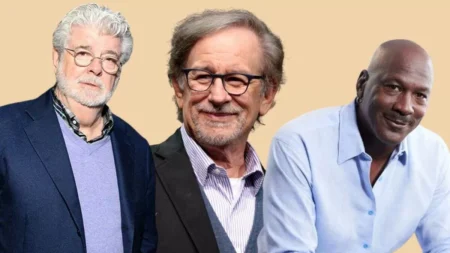Muhammad Ali: The Greatest of All Time
Muhammad Ali, born Cassius Marcellus Clay Jr., is a name synonymous with greatness. From his early struggles in segregated America to his legendary boxing career and global humanitarian efforts, Ali remains an icon whose story inspires millions.
The Early Life of Muhammad Ali
Muhammad Ali’s Childhood and Family Background
Born on January 17, 1942, in Louisville, Kentucky, Ali was raised in a working-class family. His father painted billboards, while his mother worked as a domestic help. Despite their modest means, the Clays emphasized values of hard work and resilience, traits that would define Ali’s life.
How Muhammad Ali Discovered Boxing
At the age of 12, a stolen bicycle set Ali on the path to greatness. Determined to fight back, he started training under Joe Martin, a local police officer and boxing coach. His raw talent and unmatched determination quickly set him apart.
Muhammad Ali’s Rise in Boxing
Amateur Success of Muhammad Ali
Ali dominated amateur boxing, amassing a stellar record of 100 wins and just 5 losses. His crowning achievement came in the 1960 Rome Olympics, where he won gold in the light heavyweight division. Despite this success, Ali faced racial discrimination upon returning home, a moment that shaped his activism.
Muhammad Ali Becomes a Professional Boxer
Ali’s professional debut in 1960 marked the start of a career that would redefine boxing. His unique style, characterized by speed, agility, and charisma, made him an instant crowd favorite.
Muhammad Ali’s Boxing Career Highlights
Muhammad Ali Wins His First Heavyweight Title
In 1964, Ali shocked the world by defeating Sonny Liston to become the youngest heavyweight champion at the time. His post-fight declaration, “I am the greatest!”, became an enduring part of his legacy.
The Rivalries That Defined Muhammad Ali
Muhammad Ali vs. Joe Frazier: The Thrilla in Manila
Ali and Frazier’s trilogy of fights remains one of the greatest rivalries in sports. Their final bout in 1975, known as the “Thrilla in Manila,” pushed both men to their physical limits, with Ali emerging victorious.
Rumble in the Jungle: Muhammad Ali vs. George Foreman
In 1974, Ali reclaimed his heavyweight title by defeating George Foreman in Zaire. Using his “rope-a-dope” strategy, Ali outwitted and outlasted the younger, stronger Foreman.
Muhammad Ali’s Later Fights
Ali continued boxing into his late 30s, facing challenges from younger fighters. Notable losses included bouts against Larry Holmes and Trevor Berbick, but his earlier achievements had already solidified his legacy.
Muhammad Ali’s Stand Against the Vietnam War
Why Muhammad Ali Refused the Draft
In 1967, Ali refused to serve in the Vietnam War, citing religious beliefs and his stance against oppression. His famous quote, “I ain’t got no quarrel with them Viet Cong,” resonated globally, making him a symbol of resistance.
Impact of Muhammad Ali’s Defiance
Ali’s decision led to the loss of his boxing license and heavyweight title, as well as a three-year ban from the sport. Despite this, he became a global advocate for justice and equality.
Muhammad Ali’s Personal Life and Family
The Marriages and Children of Muhammad Ali
Ali was married four times and fathered nine children, including Laila Ali, who followed in his footsteps as a professional boxer. His relationships were complex, but his devotion to his children remained unwavering.
Muhammad Ali’s Religious Journey
After converting to Islam in 1964, Ali became a vocal advocate for religious freedom. Over time, he transitioned to Sunni Islam, further deepening his spiritual commitment.
Muhammad Ali’s Humanitarian Legacy
Philanthropy and Activism of Muhammad Ali
Ali’s humanitarian efforts spanned decades. He worked tirelessly for civil rights, hunger relief, and global peace initiatives. In 1990, he negotiated the release of American hostages in Iraq, showcasing his diplomatic acumen.
How Muhammad Ali Fought Parkinson’s Disease
Diagnosed with Parkinson’s syndrome in 1984, Ali turned his struggles into advocacy. He raised millions for Parkinson’s research and remained active in public life, inspiring millions with his courage.
Muhammad Ali’s Net Worth and Cultural Legacy
Muhammad Ali’s Net Worth and Financial Success
At his peak, Ali earned millions from fights and endorsements. By the time of his death in 2016, his net worth was estimated between $50 million and $80 million.
Awards and Recognitions for Muhammad Ali
Ali was named “Sportsman of the Century” by Sports Illustrated and “BBC Sports Personality of the Century.” His charisma, courage, and activism made him a cultural icon whose impact transcended sports.
The Death of Muhammad Ali
Muhammad Ali’s Final Years
Despite his battle with Parkinson’s, Ali remained active in humanitarian work and public appearances. His iconic moment of lighting the Olympic cauldron at the 1996 Atlanta Games is etched in history.
The Passing of Muhammad Ali
Ali passed away on June 3, 2016, at the age of 74 due to septic shock. His funeral, attended by world leaders and millions of fans, celebrated a life that changed the world.
Why Muhammad Ali Is The Greatest
Muhammad Ali’s life story is one of triumph, sacrifice, and legacy. From his groundbreaking victories in the ring to his fearless activism outside it, Ali redefined what it meant to be a champion. His legacy as “The Greatest” endures, inspiring generations to stand for justice, resilience, and excellence..
Stay tuned with updates by follow us on Facebook








